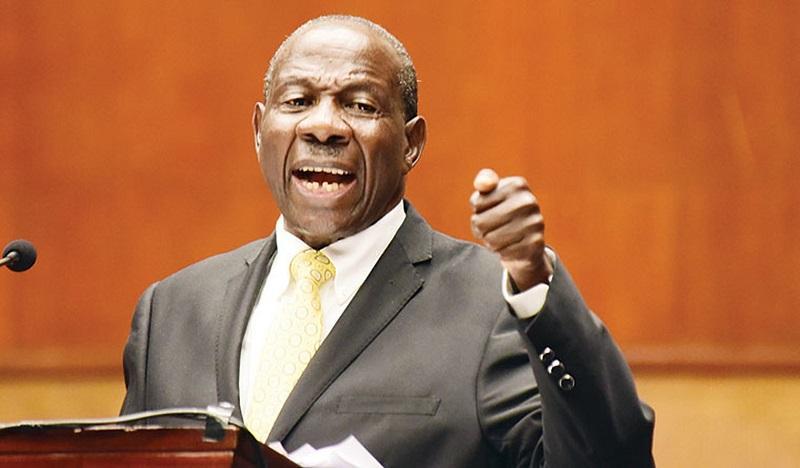Africa-Press – Uganda. With just hours left to close the 2024/2025 financial year, the Uganda Revenue Authority (URA) faced the daunting task of collecting Shs31.3 trillion—its annual target which it has failed to meet for four consecutive years.
At the same time, attention turned to the challenges that threaten Uganda’s Shs72.3 trillion national budget for 2025/2026—particularly concerns around equitable access, gender parity, and fiscal sustainability.
These pressing issues were the focus of a high-level dialogue convened Monday by the Equal Opportunities Commission (EOC) in Kampala, drawing economists, gender experts, and policy stakeholders to assess whether the new budget truly promotes equal opportunity for all Ugandans.
Beginning tomorrow, URA must collect a projected Shs33.18 trillion in domestic revenue to finance the new fiscal year.
Yet many experts at the forum questioned whether the budget, however ambitious, will translate into inclusive development.
Dr Fred Muhumuza, an economist and lecturer at Makerere University, noted that Uganda’s tax base remains dangerously narrow.
“Only 3 million people out of a population of nearly 46 million are active tax contributors,” Muhumuza said.
“Meanwhile, the country loses between 2% and 3% of its GDP due to structural inefficiencies and poor administration.”
Despite official claims that 65% of the budget aligns with gender and equity goals, experts were unconvinced that such alignment was effectively translating into real change on the ground—especially with key initiatives like the Parish Development Model (PDM) not being implemented appropriately.
Dr Martin Bakundana, a finance specialist from Makerere University Business School, challenged the logic behind Uganda’s uniform resource allocation model.
“If you give Sh 1 million to a household in Karamoja with 25 children and 20 acres of land, and then give the same amount to a household in central Buganda with five children and 40 acres—how is that equitable? Where’s the logic?” he asked.
The forum also drew sharp focus on gender-based disparities, which remain deeply entrenched in Uganda’s economic structures.
“Women face systematic disadvantages that limit their productivity and participation,” said Dr. Anna Ninsiima, a gender and development lecturer.
“The real challenge is: how do we foster growth while ensuring that everyone benefits from it?”
Participants unanimously called for a “decluttering” of the budget to cut wasteful spending and redirect resources toward productive and inclusive development programs.
EOC Chairperson Safia Nalule Juuko reiterated the Commission’s constitutional mandate to ensure balanced development and announced a push for every government vote (budget line) to meet specific gender and equity standards.
“The Constitution talks about equitable development,” she said. “Our goal at the EOC is to ensure every budget program addresses disparities in access and opportunity.”
But despite the policy commitments, fiscal realities cast a long shadow. Experts warned that with 43% of the new budget going toward debt servicing and the majority of the rest absorbed by recurrent expenditures—especially public sector wages—the scope for transformative, equity-centered investments remains limited.
“The budget should serve the people,” one analyst concluded. “But if nearly half of it is spent on debt and the rest on salaries, how much is left for real development?”
As Uganda enters a new financial year, the conversation started at the EOC may shape how future budgets move from promises of equity to actual inclusive impact.
For More News And Analysis About Uganda Follow Africa-Press






